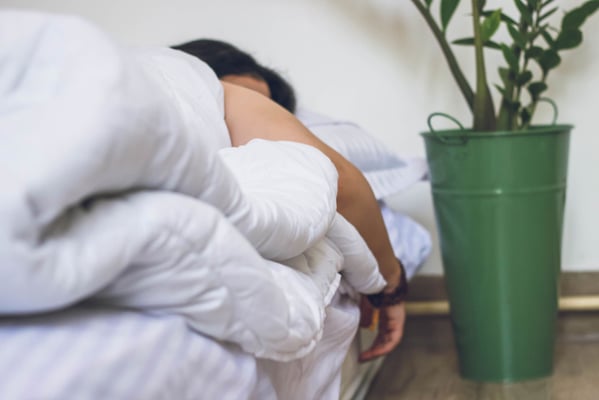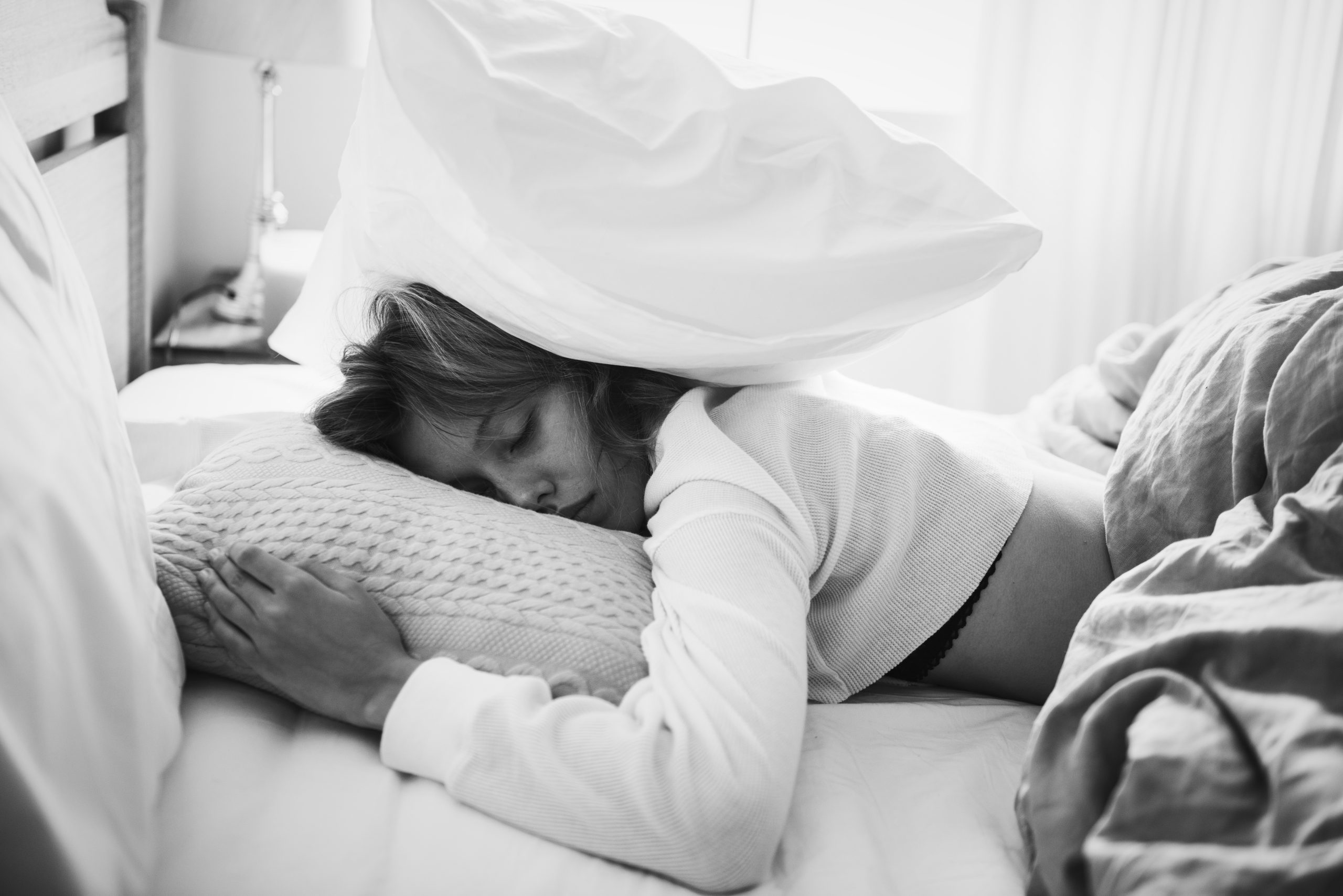Sleep Hygiene: Can it Really Help Me Get a Better Night’s Sleep?
Zzzzzzz…most of us know all these Zs represent sleeping, but for over one-third of American adults, those letters often stand for zero, zip, or zilch when talking about sleep. If that’s you, you know you are not alone. A good night’s sleep is defined as getting seven or more hours of sleep each night, feeling rested after waking, and feeling awake during daytime hours. Sleep is the cornerstone of wellness, so let’s see if we can get some of those good z’s back!

What is Sleep Hygiene?
Sleep hygiene is a remarkably simple concept worth looking into that can have a significant impact on how you sleep and feel. The basic concept is that you build healthy sleep habits at night and during the day. You learn to optimize your daily routine and bedroom environment to promote uninterrupted and consistent sleep. If you are a parent, you probably already know that children sleep better when a consistent pre-bed routine is set up. Adults aren’t all that different. Ask yourself:
- Do you have a hard time falling asleep?
- Do you experience frequent sleep disturbances?
- Are you sleepy during the day?
- Do you feel like you have an overall lack of sleep quality and quantity?
If you answered yes to any of these questions, it may be time to consider learning about sleep hygiene.
Create Your Own Sleep Hygiene Checklist
Every sleeper can tailor their sleep hygiene practices for their unique needs. Start by picking a few of the practices in each category below and create your own sleep hygiene checklist.
Set a Stable Sleep Schedule
- Wake up at the same time each morning, regardless of if it’s during the week or the weekend
- Have a target bedtime based on your wake-up time, and be ready for bed at that time each night
- If you need a nap, limit it to 20 to 30 minutes in the early afternoon
Establish a Relaxing Pre-Bedtime Routine
- Take 30 minutes to wind down with whatever relaxes your mind, like soft music, light stretching, reading or relaxation exercises, wash your face, brush your teeth, take a hot bath, or try some herbal tea
- Turn off the electronic devices with a 30 to 60-minute device-free buffer before bed
- Don’t make falling asleep your goal. Instead, focus on relaxing with meditation, mindfulness, paced breathing, or try a weighted blanket
- Write down and prioritize your worries or tasks on a to-do list to get them out of your head
- If after 20 minutes you haven’t fallen asleep, don’t toss and turn; get up, stretch, read, or try one of the suggestions above before trying to fall asleep again

Cultivate Healthy Daily Habits
- Get some daylight exposure; sunlight is a key element that encourages healthy sleep
- Get some physical activity; with as little as 30 minutes of exercise a day, it can greatly improve sleep quality, but not one to two hours before bedtime to avoid increasing your energy levels
- Be mindful of alcohol consumption; alcohol may make it easier to fall asleep, but the effect wears off
- Cut off all caffeine at least 12 hours before going to bed; one cup of regular brewed coffee has about 100 mg of caffeine with a 12-hour quarter life (if consuming 200 mg of caffeine at noon, you will still have 50 mg of caffeine in your body at midnight)
- Don’t dine late, particularly a heavy meal that you will still be digesting when you go to bed
Create a Comfortable Bedroom Free of Distractions
- Have a comfortable mattress and pillow; it’s critical for comfortable and pain-free sleep
- Set a cool yet comfortable temperature; everyone has a different preference, but cooler, around 65° is better
- Block out light with heavy curtains or an eye mask
- Try ear plugs, a fan, or a white noise app to drown out noise
- Try using a calming scent spray such as lavender which can create a tranquil environment
- Silence cell phone notifications or take the phone out of the bedroom
We can’t go at full speed all day and then suddenly stop, drop, and sleep. Put yourself in the best sleep environment each night to greatly improve your physical and mental health. Why not give a few of these practices a try? You may just sleep more soundly through the night and wake up well rested tomorrow!
Heidi Kutz
Education Specialist, ViaroHealth
For questions or comments, please contact wellness@viarohealth.com



